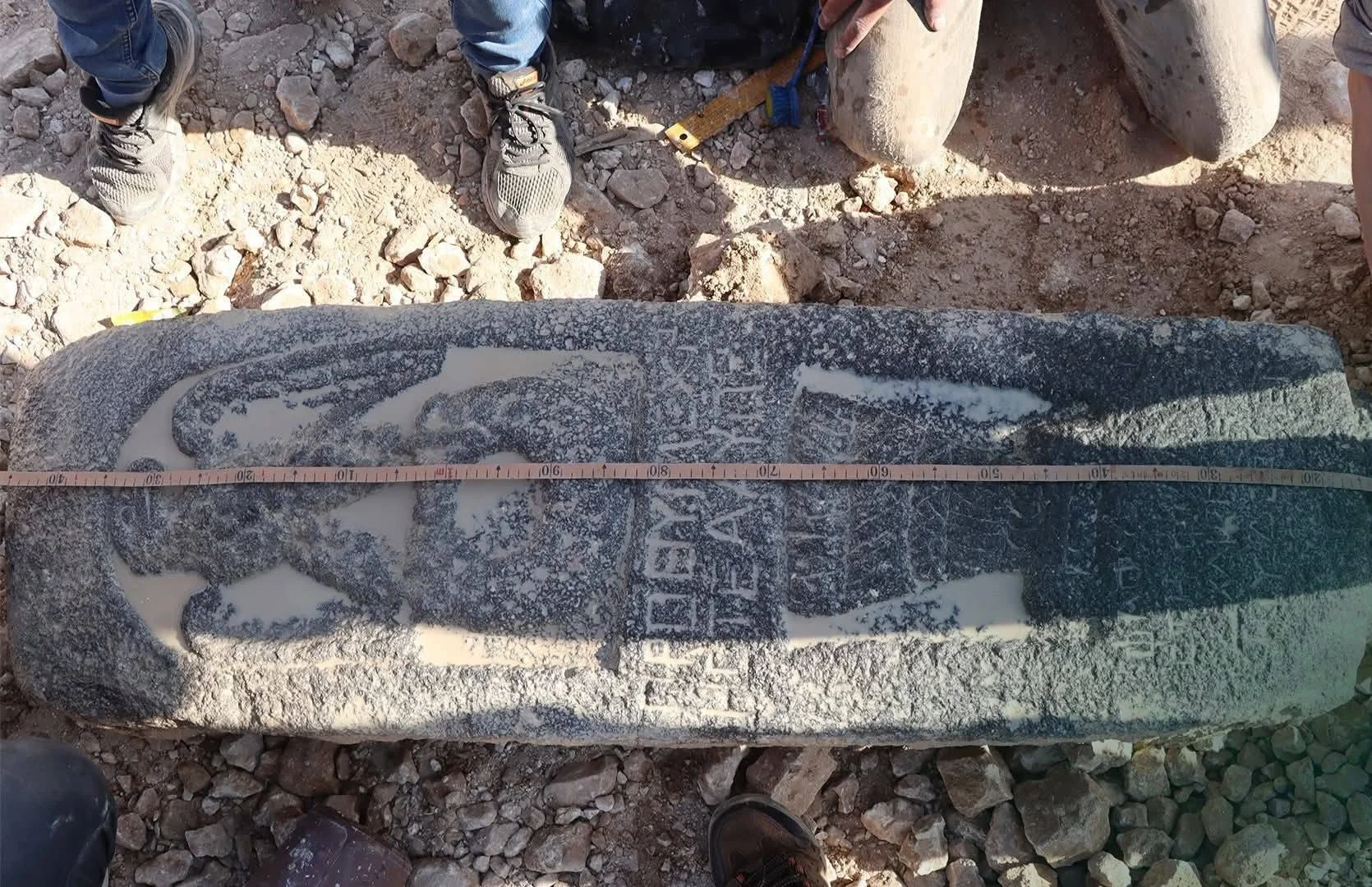Archaeologists have unearthed a heavy black basalt stele in Manbij, a town east of Aleppo, Syria.
The stone stele is decorated with a carved eagle and a Greek inscription, which experts believe may have been a funerary marker during the Roman period around 2,000-years-ago.
The discovery was first made by a local resident who noticed the stone behind the Cardamom wholesale market, likely as a result of looting and the trade in artefacts.
Syria’s decade-long civil war has devastated its cultural heritage. Between 2011 and 2019, the Directorate-General of Antiquities and Museums estimates that around one million artefacts were looted, while more than 700 archaeological sites sustained severe damage.
Manbij became a hub for antiquities smuggling during the conflict. Under the Assad regime, treasure hunting was tightly controlled by political cronies.
When the Free Syrian Army captured the city in 2012, oversight collapsed, leading to chaotic, large-scale looting. ISIS, which seized Manbij in 2014, imposed a licensing system: locals could dig for artefacts with permits, but finds made of precious metals or ceramics were taxed, while figural artefacts had to be surrendered for destruction.
After the Syrian Democratic Forces ousted ISIS in 2016, they too became entangled in the antiquities trade. Leaders and their associates organised excavations, ran protection rackets, and claimed up to 60% of the value of discovered objects, sometimes seizing them outright until payment was arranged.
Under SDF control, Manbij evolved into a major market where stolen artefacts—often trafficked in from Palmyra, Raqqa, and Hasakah—were prepared for illicit export to neighbouring countries and beyond.
For now, the newly uncovered stele has been moved to Manbij, where it will remain under guard before being transferred to Aleppo for further study.
Hearder Image Credit : Directorate of Museums and Antiquities
Sources : Directorate of Museums and Antiquities





